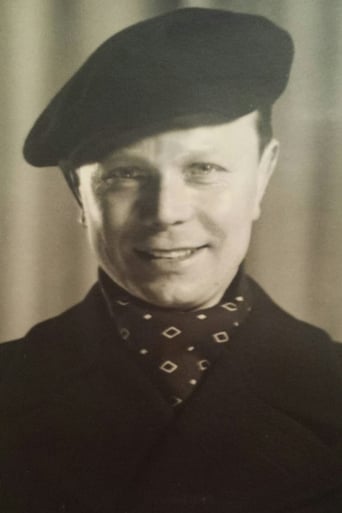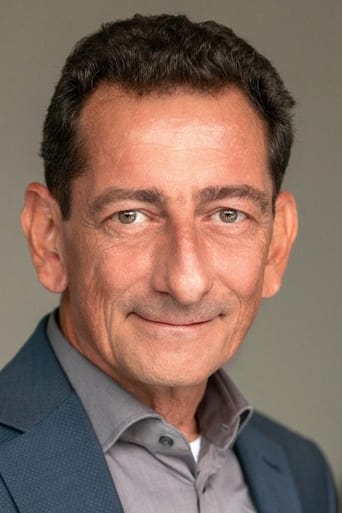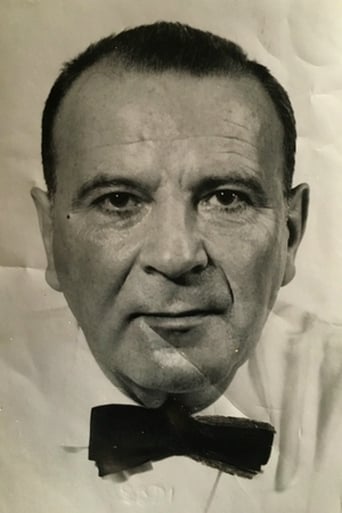avik-basu1889
'Germany Year Zero' was the final film in Roberto Rosellini's acclaimed 'War Trilogy'. This particular film distinguishes itself from the preceding two due to the fact that the focus shifts from the lives of Italians to the lives of Germans, after the end of WWII. 'Germany Year Zero' might be the bleakest and most depressing of the three films in the trilogy. In 'Rome, Open City', even with the struggle and oppression, there is a clear celebration of togetherness and the power of human conviction, resistance and idealism in the face of torture. In 'Paisan' underneath the melancholic exterior, there is an intimate exploration of friendship and brotherhood that transcends geographical and linguistic barriers. Although there are some intimate moments of tenderness involving the Kohler family in 'Germany Year Zero', but these moments get drowned under a constant and inescapably thick layer of hopelessness and doom. The film's opening credit sequence is accompanied by extended tracking shots of Berlin ravaged by war. We get these chilling moving images of completely destroyed homes, endless ruins and huge piles of rubble everywhere. This haunting imagery of the ruined Berlin reminded me of Werner Herzog's 'Lessons of Darkness'. Rossellini evokes this visual aura where the viewer feels like an outsider getting a bird's eye view of a desolate, long deserted alien world that has undergone complete destruction. He again uses a similar overhead tracking shot of ravaged Berlin in a scene towards the middle of the film with Hitler's speech playing over the visuals which adds a haunting and ironic vibe to the moving images.The film's deathly hopelessness is epitomised in a way by the fact that the first scene of the film is set in a graveyard. There is very little in terms of levity or intimacy in the film. Rossellini is intent on capturing the struggle and pain of the people of Berlin, but I think he also made a conscious effort to keep moments of sweetness few and far between in order to reflect the bitter truth of post war Germany without the ornamentation of sentimentality. Another very important theme being explored in 'Germany Year Zero' is the theme of lost innocence and premature adulthood. This theme connects 'Germany Year Zero' with Tarkovsky's 'Ivan's Childhood'. One can see a bit of Edmund in Ivan and vice-versa. Edmund has to work tirelessly to help out his family. He goes out in the streets looking to do anything that he can so that he can earn something for his family without once thinking about his own needs. This premature loss of childhood is depicted in one scene towards the end where Edmund requests a group of young kids playing football in the streets to let him play with them, but they ditch him and he walks away alone, it's a heartbreaking scene, but it's immensely poignant.The character of Karl-Heinz symbolised all the ordinary Germans who supported Hitler back in the day and now after the war find themselves cheated and helpless. Unfortunately their acknowledgment of the guilt and past mistakes has come far too late. Rossellini also tries to distinguish between the ordinary Germans who acknowledged their guilt for supporting the Nazi party in the past and the people who continued to believe in the Nazi philosophies even after their defeat. There are a few characters in the film who are being forced to live in the post Nazi Germany while still holding onto their Nazi beliefs. However this is where I think the film stumbles by using a very unnecessary angle of pedophilia. The character of Mr.Henning could have just been a Nazi sympathiser struggling with his ideals and his identity in a post Nazi Germany which could have been a complex element in the narrative and also very compelling, but instead he is given this silly pedophilia element which undercuts and cheapens the scope of his character in the narrative. A similar treatment was also present in 'Rome, Open City' where Nazism gets equated with homosexuality(which is not just cheap, but also very offensive in today's context). I would've loved to have a more mature exploration and critique of Nazism.Visually, the film looks great. One can see the gradual development in Rossellini's visual style over the course of the three films in this trilogy. There are many examples of swift and intricate camera movement present in 'Germany Year Zero'. Rossellini shoots the interior scenes using long takes with the actors close to the camera to build up the claustrophobia. He juxtaposes that approach by using wide angle photography in the street scenes to make Edmund look especially tiny in the midst of the ravaged Berlin cityscape. However there is a weakness present in Rossellini's direction that was present in 'Paisan' too. 'Rome, Open City' had some powerful actors like Anna Magnani and Aldo Fabrizi and they gave great performances. However it is clear from 'Paisan' and 'Germany Year Zero' that Rossellini at least at the beginning of his career found it hard to get good performances out of amateurs. There are many scenes in this film where the performances are extremely stiff, wooden and unconvincing. In a film which inherently is emotionally demoralising, the sub-par performances can at times make it even more tough to connect with it from an emotional standpoint.'Germany Year Zero' is upsetting, and it won't inflate the balloons of hope in the minds of the viewer. But I think all that is intentional as Rossellini wanted the film to reflect the genuine depression and hopelessness which engulfed post war Germany. I admire the themes being explored which involves loss of innocence, the distinction between ordinary Germans and Nazis,etc. Although the treatment of the character of Mr.Henning with his Nazi loyalties gets cheapened and the acting at times becomes cringeworthy, I still think there are enough exceptional aspects to this film to admire and 'Germany Year Zero' is certainly a solid finale to this influential trilogy.
ElMaruecan82
Besides victory and its subsequent prestige, one of the many privileges the winners get is the participation to the process of History writing. Naturally, it doesn't mean that this writing would be made of lies, but sometimes, we can lie by omission … there must be a reason why the bombing of Hiroshima and Nagazaki doesn't get the same emotional coverage than the Holocaust, or talking the bombing of Dresde or Cologne or any German town, seems indecent. Naturally, out of all the three Axis countries, Germany will pay the war's biggest price and carry forever the seal of infamy.And this is why, even today, it's still embarrassing or discomforting to talk about the suffering of the German people. They started the war, after all, so in a way, they had it coming, and who'd cry on people who were so blinded they let a man like Hitler take the power. Of course, it takes to know a minimum about history to understand that there are fifty shades of gray in these black and white images, and that a poor German grandmother still has less blood in her hands than the pilot of the Enola Gay. But that's the essence of war, it is written by winners, and this is why, "Germany: Year Zero" is not a film, it's a historical document.Its historical significance lies on the simple fact that the film is shot in 1947, when Germany was still inhabited by people who lived the War, where kids were still young enough to remember the Soviets coming to Berlin, where Hitler's voice still resonated in people's mind. Germany was slowly recovering from the pleas of World War II, the Nazi's officers were all hanged, some nostalgic kept a low profile, no doubt that Germany was at her lowest level, and an Italian director, Roberto Rosselini decided to show that historical sequence for posterity, as a part of his Post-War trilogy. I don't know if Italy being an Ally to Germany inspired this sympathy, but I can only applaud the gutsy aspect of the project."Germany: Year Zero" focuses on a little boy, named Edmund, and in the purest Neo-realist tradition, we're invited to follow a kid's journey within the ruins of a devastated Berlin, trying to find ways to nourish his impoverished family. And as we follow him, we realize that the greatest heals are the moral ones, those that can't be sealed like that, women tempted to prostitute themselves, impotent men condemned to be a burden for their family, young kids forced to steal, to smuggle food, young girls to exchange a few touching and kissing for cigarettes, an ex-soldier hiding not to be enrolled with the police and so-on and so forth … yet the most painful character's arc is for the little Edmund. As usual for Neo-Realism, kids represent the innocent present corrupted by the corrupting effects of the past on the future.Edmund looks like one of these Hitlerian youth pictures, he's 13 but sounds younger, he's obviously a good kid, who hasn't been brainwashed by Nazi propaganda, but his ineptitude to read between the adult lines and to understand the lies and the cynicism will lead him to devastating decisions. And this is the story, Rosselini tells us, not Germany, but a part of Germany's soul lost by the War, whose effects are still significant even if the swastika is history. The film shows us another facet of war, it isn't over when it's over, its effects and damages last, and we can almost talk about a sacrificed generation. Those who fought died, those who lived will suffer, and when the baby-boomers will grow old, they'll understand why the elder say "a good war, that would teach you".And after watching "Germany: Year Zero", I was glad I didn't have to go through that nightmare to understand the value of life. But I confess I didn't need the story for that, seeing the characters surrounding Edmund was enough. This is why, I'm asking myself if we, movie lovers, feel forced to love a film just for the subject it tackles. I will never go as far as saying that it is a bad movie, I must say the story of Edmund didn't leave me quite an impression, I mean, I felt sorrier for German people than Edmund. And I almost feel guilty for that, I mean, for once that a filmmaker decides to focus on a post-war Germany... It's not that I wanted to love the film, I thought I would love it, I loved "Bicycle Thieves" and much more "Sciuscia" but "Germany: Year Zero" left me cold.I know the film is supposed to show a child lose his innocence, being a victim of desolation and the destruction of all the values that brandished the German flag higher than any European culture, but I couldn't find any difference between Edmund from the beginning and Edmund from the ending. The film is supposed to be dark, I give you that, but how about showing a truly enthusiastic kid in the beginning, eager to make money from black market, and then palpable reactions from all the hardship he endured, in other words: the kid wasn't a good actor or lacked some direction from Rosselini to make his character's arc believable."But neo-realism often employs amateurs actors", well, the main protagonist in "Bicycle Thieves" was an amateur, how about the performance of the child who played his son, or the other child in "Sciuscia". Yes, this is coming from someone who love Italian neo-realistic period and its influence on the 50's New Wave, this artistic wave is responsible for Fellini's greatest work. but these are movies about characters, it's all about hooking your heart on another one, no matter how flawed he or she is. But here, it's like Rosselini took for granted that because we're watching a child, it will win our sympathy.




